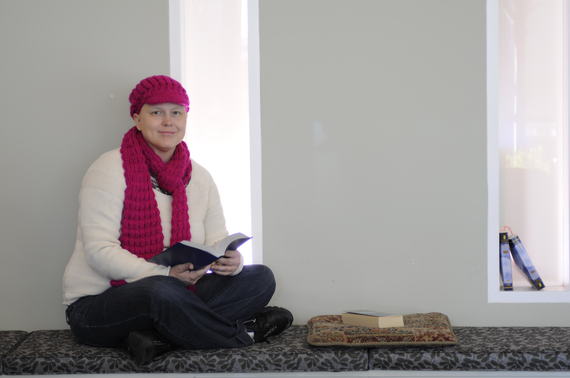Marvin Omar Delgado Guay, M.D. and Lorenzo Cohen Ph.D.
Department of Palliative, Rehabilitation and Integrative Medicine
Spirituality and religious beliefs can be important to the well-being of people who have cancer, enabling them to better cope with the disease. Spirituality and religiosity may help patients and families find deeper meaning and experience a sense of personal growth during cancer treatment, while living with cancer, and as a cancer survivor.
Studies show that religious and spiritual values are important to most people in the U.S and other countries. Patients may consider themselves as spiritual, religious, or both. These spiritual values can support an individual's sense of peace, purpose, connectedness to the moment, to self, to others, to nature, to the significant or sacred, and beliefs about the meaning of life. Spirituality is also connected to finding direction, self-worth, belonging to a community, to love, to be loved, and is often facilitated through seeking reconciliation when relationships are broken.
A recent study appearing in JAMA Internal Medicine reported that women who had frequent attendance to religious services might have lower risk of all-cause, cardiovascular disease, and cancer death when compared with those who did not go at all. Factors such as social support, optimism, low rates of depression, and a tendency not to smoke, might have also contributed to the effect. The effect of church attendance alone still seemed to have these benefits.
Achieving higher levels of spirituality through internal spiritual practices and experiences has been associated with more resilience, adaptive coping strategies, and less severe depression. In this way, spirituality provides a system of meaning that emphasizes hope, adaptation, insight, gratitude, and the belief that circumstances are not senseless or meaningless.
Many individuals recognize their life-threatening illness as an opportunity for spiritual growth. Having access to spirituality through meaning, purpose, connections with others, or connections with a higher power can provide them with the spiritual resources necessary to adjust to adverse circumstances.
For some patients, spiritual well-being may affect the whole experience of their illness, as well as their treatment decisions toward the end-of-life. Some patients and their caregivers may want doctors to talk about spiritual concerns, but may feel unsure about how to approach the subject. Patients with cancer also struggle with spiritual/existential concerns alongside the physical and emotional challenges of their illness. It is important to notice that caregivers might also experience spiritual needs/concerns and suffering. Do not be afraid to incorporate spiritual needs into your care.
Here are Six Ways to Foster Your Spiritual Life and a Healing Environment
1.Live one day at the time, and enjoy it with people you love.
2.Make time for yourself; to heal and love.
3.Try to cultivate gratefulness in your life. At some point in your day, write down three things for which you are grateful.
4.Share your emotions - worries, fears, happiness, etc. - with the people you are comfortable with who love and support you.
5.Continue to grow your relationship with a Higher Power (if that is important to you).
6.Continue to grow your relationship with yourself and others.
Do not let spiritual distress affect the way you cope with cancer and its treatment. Addressing spiritual issues with your health care team may improve your health, quality of life and ability to cope.
For additional details visit www.mdanderson.org/integrativemedcenter, Palliative, Rehabilitation and Integrative Medicine, or Spiritual Care and Education.
Follow at: Twitter; Facebook; Integrative Medicine Program
